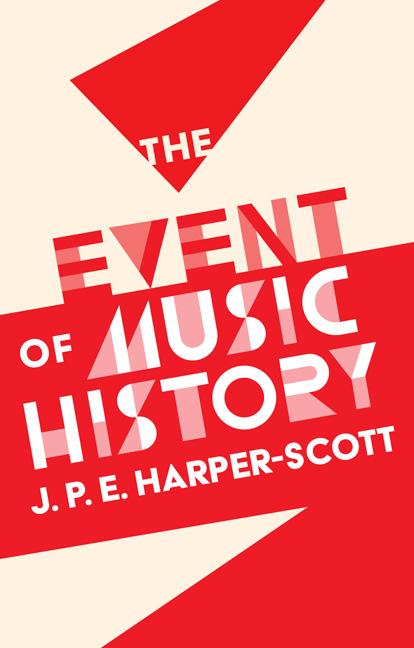3 - The Absolute Nothingness of Music History
Published online by Cambridge University Press: 27 March 2021
Summary
Dogmatism and Truth-Disclosing Artworks
WE MUST WRITE MUSIC history from the perspective of truth; truth is what we cannot access empirically. That is the hard urging of evental history, and it is necessary to determine how the scholarship this calls for can be achieved without simply replacing an old family of dogmatisms – the various genres of empirical history writing – with a new and equally pernicious form. Were the truth of the Event to be misprised as a kind of arcane knowledge, on the basis of which every historical datum can be allocated a determinate meaning, a new and essentially Constructionist dogmatism would thereby frustrate all attempts to reorientate the field of music history.
To escape dogmatism, it is therefore necessary to critique one of the oldest notions in aesthetics, that art imitates nature, with meaning flowing untrammeled between them. Adorno complicates this idea by making three interrelated, paradoxical points that provide a useful way forward, even though this entails taking steps away from Adorno and from the European tradition of philosophy. The paradoxes are that (1) art imitates nature, which does not exist; (2) art presences truth, which cannot be made; and (3) truth negates the artwork which presences it. He unfurls them with characteristic reconditeness:
Nature, to whose imago art is devoted, does not yet in any way exist; what is true in art is something nonexistent. What does not exist becomes incumbent on art in that other for which identity-positing reason, which reduced it to material, uses the word nature. This other is not concept and unity, but rather a multiplicity. Thus truth content presents itself in art as a multiplicity, not as the concept that abstractly subordinates artworks. The bond of the truth content of art to its works and the multiplicity of what surpasses identification accord. Of all the paradoxes of art, no doubt the innermost one is that only through making, through the production of particular works specifically and completely formed in themselves, and never through any immediate vision, does art achieve what is not made, the truth. Artworks stand in the most extreme tension to their truth content. Although this truth content, conceptless, appears nowhere else than in what is made, it negates the made.
- Type
- Chapter
- Information
- The Event of Music History , pp. 85 - 110Publisher: Boydell & BrewerPrint publication year: 2021



